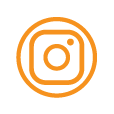How to recycle correctly?
- GUIAND

- Mar 10, 2022
- 4 min read

If it is true that we are recycling more and more and better, we still do not know what and how we can give it a second life. The vast majority of the population is aware that the yellow, blue and green cubes are intended for recycling packaging, clean paper and cardboard and glass, respectively, but many objects can be deposited in a clean place or transported to a waste manager. Recycling costs much less than making a new product from scratch.
Waste electrical and electronic equipment (WEEE), the computer equipment that we all have at home, are some of the items that are normally thrown into the container through ignorance: speakers, mobile phones, headphones, computer screens... and even printer ink cartridges. However, they should be transported to a plant where they treat this type of waste in order to decontaminate it properly, disassemble it and sort the materials it contains. Similarly, electrical appliances such as coffee makers, toasters or vacuum cleaners can also be recycled. This waste, called "electronic waste", is becoming more and more abundant and is largely responsible for water, soil and air pollution, so it is essential to be aware of the importance of proper recycling. Thanks to the collaboration of citizens, they can be collected separately for proper treatment, recycling and recovery. In the facilities of waste managers, different processes make it possible to give a second life to this waste, thus contributing to the circular economy.
The computer equipment that we all have at home are some of the objects that are usually thrown into the container out of ignorance.
As for fluorescent lamps, they contain small amounts of argon and mercury vapour, substances that make them a hazardous waste at the end of their lifespan. Once at the destination, the electrodes are separated, the toxic dust is sucked in and the glass is crushed for recycling. For example, light bulbs and fluorescents must be transported to a clean place instead of being deposited in the glass container. In the same line, the paint containers can be recycled, but if it contains solvent, it must also be deposited at the clean spot to ensure proper treatment. Other products with the same problem are car batteries, engine oil filters, brake fluid or asbestos fibres: they are all recyclable but must be handled by a waste manager.
The belief that an object is recycled in a specific way when it actually involves a different procedure or that there is no possibility of giving it another life is another common problem. For example, used paper towels would not go into the blue container, but into the organic container. Similarly, grease-stained pizza boxes are not recyclable, nor are cardboard ice boxes. On the other hand, the containers that are deposited in the yellow container must be completely empty so that their destination is not the landfill.
Another problem is the belief that an object is recycled in a way that actually involves another procedure or that it is not possible to give it another life.
Even if they are plastic, the toys cannot be thrown into the yellow container because they are not packaging. In addition, some contain other materials, such as batteries, which need to be removed, and electrical components. They must therefore be completed, but the best option is to give them to an NGO.
Reducing, reusing and recycling is essential to reduce the pollution of the planet and ensure the health of the species that live there. Recycling saves energy, water and raw materials, creates new jobs and avoids the exploitation of natural resources. In addition, it makes it possible to extend the life of landfills (because less waste arrives). A huge advantage over the small things we can do every day.

Grup REFESA is one of the leading companies in the recycling and waste management sector in Andorra. With 100% of the country’s capital, it is composed of two leading companies in waste management and the circular economy: LSR (Logistique i Serveis del Reciclatge) and REFESA (Recuperacions Fèrriques), and counts on the experience of four generations dedicated to the sector. The group has different business lines: integrated waste management, WEEE treatment, decommissioning of end-of-life vehicles, construction waste, hazardous waste and used spare parts. The company has a very significant stake in the recycling of WEEE, which is currently the only company in the country authorized to treat this type of waste. It takes care of their disassembly and carries out the corresponding decontamination so that the various components can be reused, thus contributing to the circular economy and giving them a new life. The group is composed of a qualified team with years of experience in the sector, staff with ADR hazardous materials cards for the transport of waste and, in addition, specific continuing training in occupational hazards, fire prevention and suppression and safety advisor.
Tel: +376 844 133
gruprefesa@gruprefesa.com
















Comments